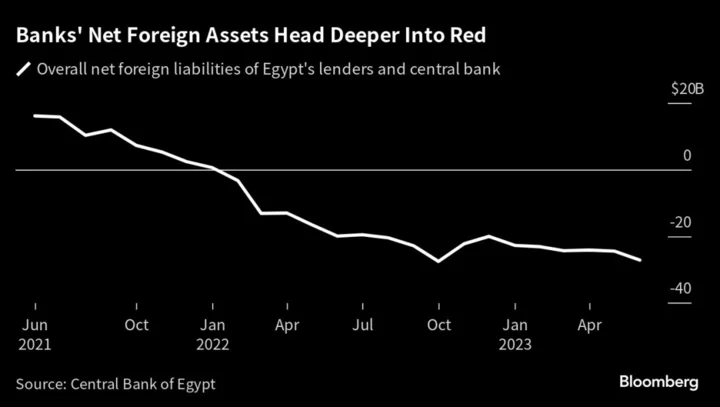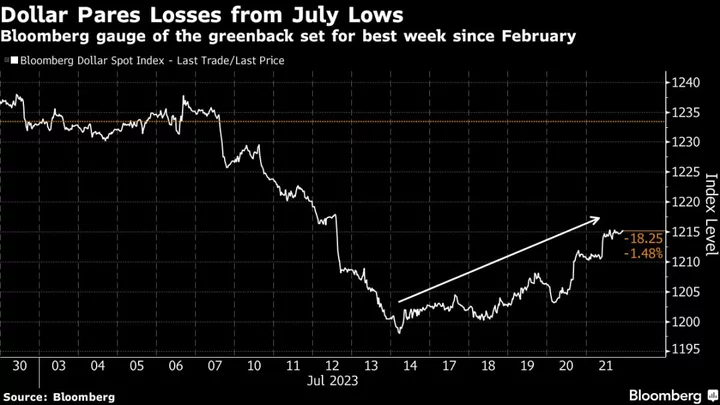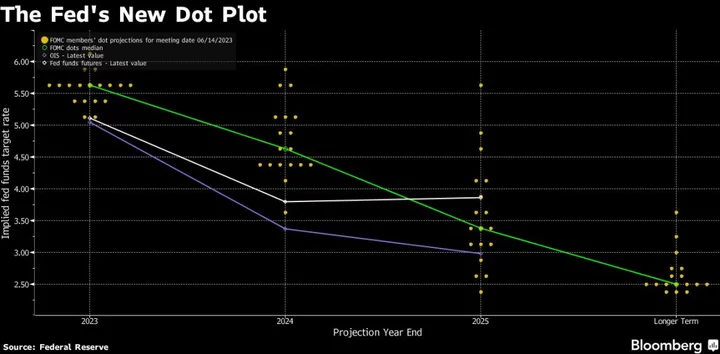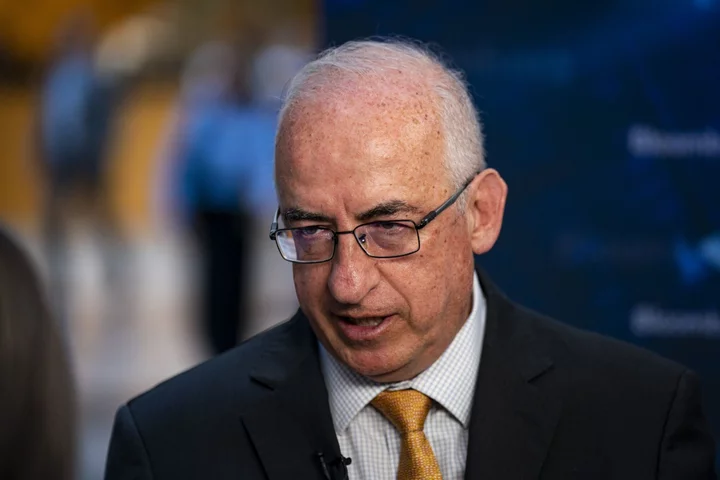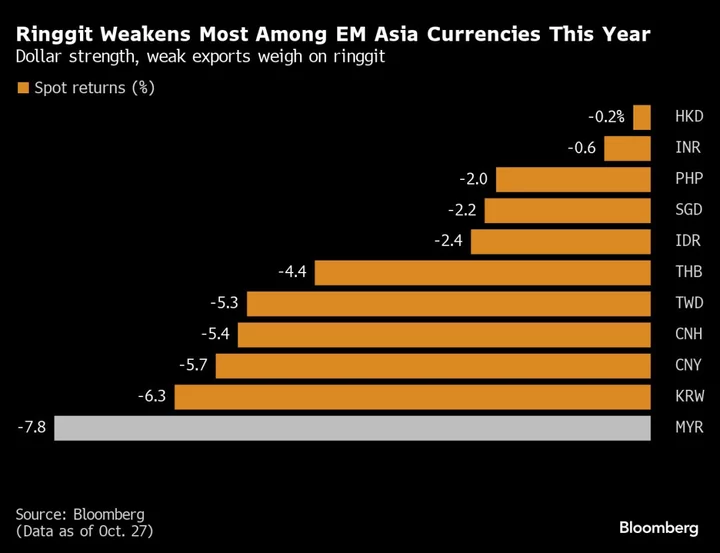UK wage growth held at a level that Bank of England Governor Andrew Bailey said is fueling inflation, maintaining pressure for higher interest rates.
Average weekly earnings excluding bonuses held at 7.3% in the three months through May after figures for the period through April were revised up, the Office for National Statistics said Tuesday. It equaled the highest readings on record, last month and in mid-2021 when the figures were distorted by the pandemic. Economists had expected a slowdown to 7.1%.
“Today’s data confirm that the labor market is still too hot, as pay growth remains uncomfortably high,” said Yael Selfin, Chief Economist at KPMG UK.
The figures are the first of two pieces of crucial data that will shape the Bank of England’s next decision on interest rates due on Aug. 3.
The pound edged higher after the release. It rose as much as 0.3% to $1.2899, the highest since April 2022.
The report also showed strong employment growth but an unexpected tick up in the unemployment rate to 4% as more people looked for jobs — a sign that tightness in the labor market may be starting to ease.
Policy makers led by Bailey are concerned inflation remains more than four times higher than their 2% target, with workers demanding higher pay to compensate for a squeeze on their living standards coming from soaring prices. Inflation data is due on July 19.
Pay excluding bonuses in the private sector picked up to 7.7%, the biggest growth outside of the pandemic. Public-sector pay climbed at the fastest pace since 2001.
“Both price and wage increases at current rates are not consistent with the inflation target,” said Bailey said. “The interaction of above-target headline inflation with labor market tightness and demand pressure in the economy has made underlying developments in goods and services price inflation more sticky than previously expected.”
Tightness in the labor market is one of the main factors fueling inflation in the UK, which at 8.7% in May was higher than any other Group of Seven nation. Bailey used his Mansion House speech on Monday to warn that wage pressures are currently too strong to rein in price growth in the UK.
More than 500,000 people dropped out of the British workforce in the pandemic, forcing companies to offer higher pay to attract the staff they need. Bailey has said employers are also hoarding workers after facing recruitment difficulties, keeping unemployment extremely low.
This month’s report showed the portion of people classed as economically inactive — not in work or looking for a job — fell 0.4 percentage points compared to the previous quarter to 20.8%. It’s now 0.6 points higher than pre-pandemic levels.
Most age groups contributed to the drop, with a large decline in long-term sickness and more students returning to work.
The ONS said that long-term sickness — a problem that has plagued the UK jobs market — decreased slightly on the quarter. The fall in inactivity was largely driven by those in the other category, including those looking after family and those who are retired.
The BOE was forced to step up the pace of its interest rate rises last month after much stronger than expected labor market and inflation data. Investors have almost fully priced in a half-point hike in the BOE’s key rate to 5.5% in August and a peak rate of 6.5% early next year — the highest in more than two decades.
--With assistance from Constantine Courcoulas and Brendan Scott.
(Updates with market reaction and details from report.)
Author: Tom Rees, Philip Aldrick and Lucy White





